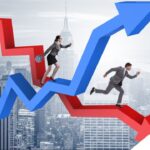Code: Section 153 – Bharatiya Sakshya Adhiniyam (BSA)
If the Court is of opinion that any such question was asked without reasonable
grounds, it may, if it was asked by any advocate, report the circumstances of the case to the
High Court or other authority to which such advocate is subject in the exercise of his
profession.
Explanation of Section 153 BSA
Section 153 of the Bharatiya Sakshya Adhiniyam (BSA) sets a clear professional boundary for advocates during cross-examination. When a lawyer asks a damaging question without having a reasonable basis, the Court has the authority to take corrective action. Specifically, the Court may report the situation to the High Court or other legal authority responsible for regulating the advocate.
This rule ensures that legal professionals act responsibly when questioning witnesses. It also protects individuals from baseless and harmful accusations. By encouraging respectful and well-founded courtroom behavior, Section 153 strengthens the fairness of the legal process.
Moreover, this section works in coordination with Section 151 (Court’s discretion to allow or disallow character-related questions) and Section 152 (requirement of reasonable grounds for such questions).
Illustration
Let’s consider a practical example to understand how this section applies:
Example:
During cross-examination, an advocate suddenly asks a witness if they have ever been involved in criminal activity. There is no background information, documentation, or instruction supporting this question. The intention appears to be to discredit the witness rather than uncover the truth.
If the Court finds that the question was asked without any valid reason, it may decide to report the advocate’s conduct to the Bar Council or High Court. This step helps ensure accountability.
Common Questions and Answers on Section 153 BSA
1. What does Section 153 aim to prevent?
It aims to prevent lawyers from making reckless or harmful accusations during witness questioning. It promotes professionalism and fairness in court proceedings.
2. Can the Court take action without a complaint?
Yes. The Court can act on its own if it believes a question was asked without good reason. It doesn’t need a formal complaint.
3. Who can be reported under this law?
This section applies specifically to advocates. If an advocate acts irresponsibly, the Court may report them to the High Court or relevant authority.
4. Is it mandatory for the Court to report such conduct?
No. The law uses the word “may,” meaning the Court has the choice. It can decide whether the situation warrants a formal report.
5. How does this relate to Sections 151 and 152?
Section 151 gives the Court control over questions about a witness’s character. Section 152 requires that such questions must be based on solid reasons. Section 153 outlines the action the Court can take when these rules are violated.
Conclusion
Section 153 of the Bharatiya Sakshya Adhiniyam helps maintain order and fairness in court. It holds legal professionals accountable for their conduct and discourages baseless attacks on witnesses. Together with Sections 151 and 152, it promotes respectful, ethical, and responsible courtroom behavior.
For more straightforward explanations of Indian legal provisions, explore the growing library at ApniLaw.








